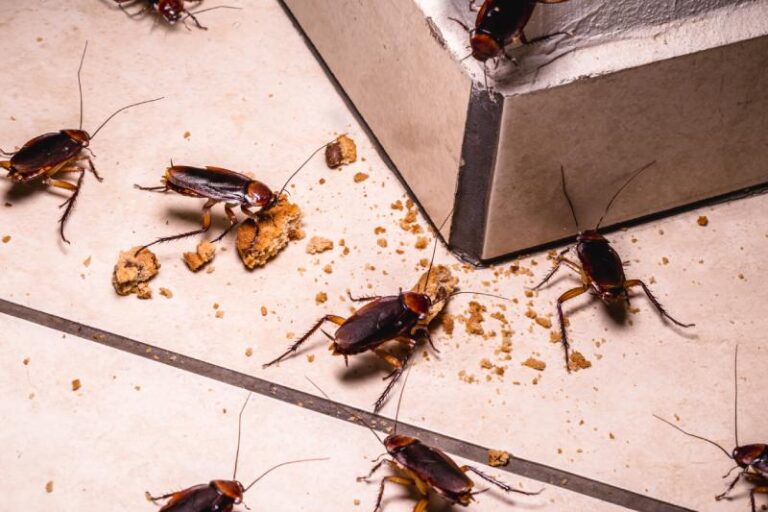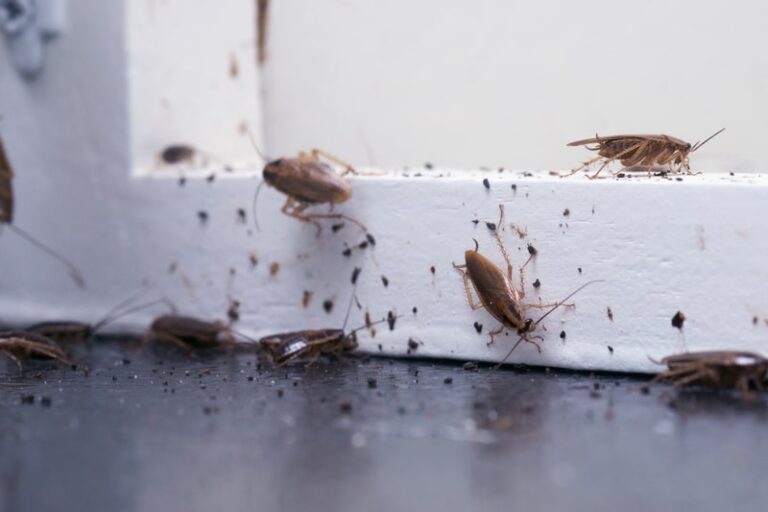Living in an apartment infested with roaches takes the experience of being a tenant to a whole new level. While dealing with these unsightly creatures can be unpleasant and embarrassing, you may ask yourself if you have any rights or options when it comes to getting out of your lease due to this pest problem. Whether it’s from safety risks associated with taking on large numbers of pests, comfort concerns or possibly needing to secure alternate housing, understanding where you stand legally is key before making any decisions about staying in your unit or terminating the lease agreement.
In this blog post we will explore the different approaches tenants can take as well as provide insight into what options are available for breaking their lease without facing significant legal questions.

Tenant Rights and Responsibilities
First things first, grab a cup of coffee and cozy up with your lease agreement. It may seem like a dense stack of legal jargon, but fear not! We’ll break it down into bite-sized, digestible pieces.
Your lease agreement is a document that outlines the rules of the rental game. It establishes the rights and responsibilities of both you, the tenant, and your landlord. It’s like a contract that sets the stage for your leasing journey.
Now, let’s talk about your rights. As a tenant, you have a range of legal protections that ensure a fair and habitable living environment. Your lease agreement should specify important factors like rent amount, payment schedule, and the duration of your tenancy. It should also cover key areas such as security deposits, maintenance responsibilities, and access to essential services.
On the flip side, your responsibilities as a tenant are equally important. You’re responsible for paying rent on time, taking good care of the property, and adhering to any specific terms outlined in the agreement. It’s like being the superhero of cleanliness and considerate living!
Remember, knowing your rights and responsibilities is crucial for maintaining a harmonious landlord-tenant relationship. If you encounter any issues or need clarification, don’t hesitate to reach out to your landlord or property management. Communication is key!
Why Roaches are a Problem
Cockroaches are notorious carriers of nasty pathogens like Salmonella, E. coli, and even allergens. These unwanted hitchhikers can contaminate your food, utensils, and food preparation areas faster than you can say “pest control emergency!”
If you’re an allergy sufferer, brace yourself. Roaches have a peculiar talent for triggering allergies and asthma attacks. They shed their skin and leave behind droppings that can become airborne. Inhaling these microscopic roach remnants can unleash a symphony of sneezes, coughs, and itchy eyes that no one wants to be part of!
Roaches aren’t just content with hanging out in your kitchen. They’re exploration experts and can find their way into your bedroom, bathroom, and even your closet. They’re like tiny, unwelcome roommates who refuse to pay rent!
Now, imagine waking up one morning to find roach bites on your skin. Yikes! These nocturnal nibblers aren’t afraid to snack on human flesh, leaving behind itchy, red welts. It’s like having a tiny vampire party while you’re peacefully snoozing!

Contacting your Landlord or Property Management
- Step one: Be the detective! Gather your roach-related evidence. Take some photos or videos, if you dare, showcasing the unwanted critters in action. Document any damage they’ve caused or areas they frequent. This evidence will be your secret weapon when you contact your landlord.
- Step two: Channel your inner communicator and reach out to your landlord or property management. Give them a friendly heads-up about the roach situation. Whether it’s a phone call, email, or in-person conversation, be polite, concise, and don’t forget to mention the urgency of the matter.
- Step three: Provide the juicy details! Be ready to describe the extent of the roach infestation, when you first noticed it, and any areas of the apartment that are most affected. This will help your landlord or property management gauge the severity of the situation and determine the appropriate course of action.
- Step four: Request immediate action, but keep it friendly. Politely emphasize the need for prompt pest control measures to nip this roach party in the bud. You have the right to live in a clean and habitable space, so don’t be shy about expressing your concerns and expectations.
- Step five: Document, document, document! Keep a record of all your communication with your landlord or property management regarding the roach issue. Note down dates, times, and any agreements or promises made. This paper trail will be valuable if further action is needed down the road.
- Step six: Be patient, yet persistent. Give your landlord or property management a reasonable amount of time to address the issue. Roach extermination can take a little time, but if the problem persists beyond a reasonable period, don’t hesitate to follow up and politely inquire about the progress.
Requesting Immediate Action for Pest Control
If it seems that your landlord has failed to take action, there are still a few options and actions you can take.
- Assess the severity of the situation. If the roach infestation poses a significant threat to your health and well-being, it’s time to consider legal action. Persistent efforts to communicate and resolve the issue with your landlord have been in vain, and now it’s time to escalate matters.
- Research local tenant rights organizations or legal aid services that specialize in housing issues. These dedicated professionals can provide valuable guidance, support, and advice tailored to your specific situation. They are the heroes of tenant-landlord disputes, equipped with the knowledge and experience to fight for your rights.
- Document, document, document! Compile all evidence related to the roach problem—photographs, videos, correspondence with your landlord, and any relevant lease agreements. A paper trail will strengthen your case and provide legal professionals with a clear understanding of the issue.
- Consult with a lawyer or legal professional. Share the details of your situation and seek their expert opinion. They can assess the viability of a legal claim against your landlord for failure to address the roach infestation. They will guide you through the legal process, ensuring your rights are protected.
- Take action through legal channels. If your lawyer believes you have a strong case, they can help you draft a demand letter to your landlord, stating your grievances and requesting immediate resolution. The letter should outline the consequences of their inaction, such as lease termination or filing a lawsuit if necessary.
- Evaluate your options. Depending on the response from your landlord, you may need to consider alternative remedies. This could include filing a complaint with local housing authorities or pursuing a lawsuit to seek compensation for damages, lease termination, or court-ordered pest control measures.
Final Thoughts
It can be an incredibly stressful and overwhelming process to find a place to live, and finding that you now have roaches in your home is certainly disheartening. But with the correct steps and the help of knowledgeable professionals, you can break your lease without breaking the bank. While some leases are more complicated than others, paying attention to your rental agreement and being aware of state and local landlord-tenant laws will help protect you from getting into any kind of trouble in the future. Ultimately, you have to be proactive in order to get out of this situation quickly and safely. Do your research, weigh all of your options carefully, and remember that even if breaking a lease isn’t usually an easy decision – it doesn’t have to be a difficult one either.

